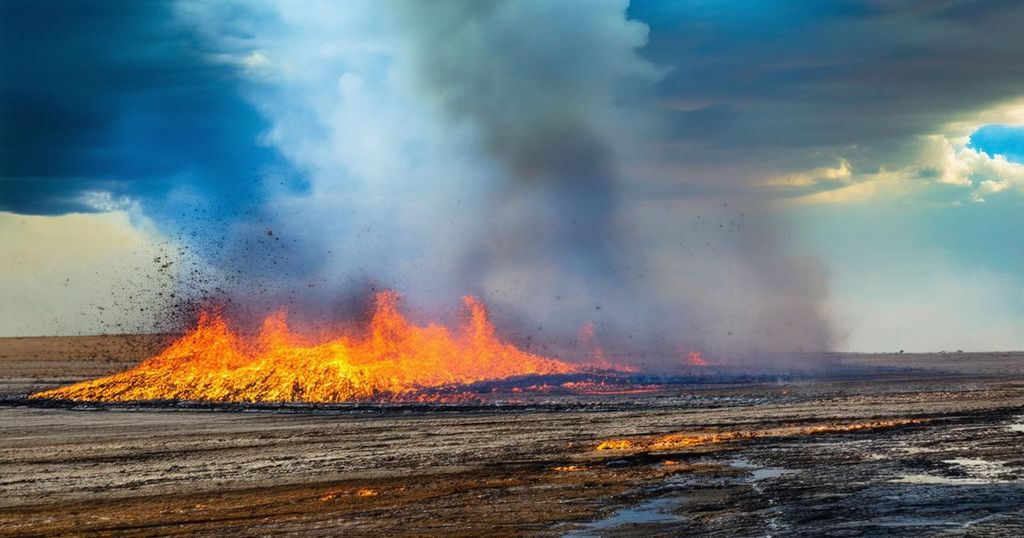The UN warns that the world is on course for a 3.1 degrees Celsius increase in global temperatures, which would result in catastrophic climate change. The report highlights the need for immediate, significant reductions in greenhouse gas emissions to safeguard the international goal of limiting warming to 1.5 degrees Celsius. Current plans are insufficient, and nations must unite for comprehensive climate action ahead of the upcoming UN Cop29 talks. Failure to close the emissions gap would result in severe consequences, especially for vulnerable populations.
The United Nations has issued a stark warning regarding the trajectory of global warming, indicating that the planet is on track for a potentially devastating temperature increase of 3.1 degrees Celsius this century. In its recent report, the UN Environment Programme (UNEP) emphasized that achieving the international target of limiting warming to 1.5 degrees Celsius is increasingly unattainable without unprecedented global mobilization to reduce carbon emissions. The report outlines that, based on current commitments and actions made by countries, global temperature increases could range from 2.6 degrees Celsius to 3.1 degrees Celsius, significantly heightening the risks of climate-related calamities. As nations prepare for the upcoming UN Cop29 talks in Baku, Azerbaijan, where discussions will revolve around stronger climate action and financing for developing nations, the UN urges immediate and comprehensive efforts. The 2015 Paris Agreement set forth an ambition to restrict temperature rises to well below 2 degrees Celsius, and ideally to 1.5 degrees Celsius, yet current national climate plans fall short. Alarmingly, greenhouse gas emissions continue to rise, prompting calls for a drastic overhaul of climate strategies to avert disaster. UN Secretary-General António Guterres cautioned that the world is “teetering on a planetary tightrope” and stressed the dire consequences of failing to bridge the emissions gap. He noted that extreme weather events such as hurricanes and flooding are already affecting the most vulnerable populations and that inaction will lead to a 3.1 degrees Celsius increase by the end of the century. Inger Andersen, executive director of UNEP, underscored the urgency of global action, stating that “climate crunch time is here,” and called for an expansive and immediate mobilization to adhere to international climate goals. The report calls for a collective commitment to reduce greenhouse gas emissions by 42% by 2030 and by 57% by 2035 to align with the 1.5 degrees Celsius target, indicating that it remains technically possible to achieve such objectives through enhanced renewable energy adoption and environmental restoration. The report signifies not only a warning but also a call to action for nations to enhance their commitments and to adopt transformative strategies that support sustainable development while mitigating climate change. The UK has also reaffirmed its leadership in climate policy, emphasizing the opportunities that arise from the transition to renewable energy and a sustainable economy.
The current climate crisis is characterized by alarming rises in global temperatures attributed to human activities, primarily the burning of fossil fuels. The Paris Agreement, established during the 2015 COP, aimed to unite countries in efforts to limit global warming and minimize climate-related risks. Despite the established goals, recent reports indicate that emissions have continued to rise, particularly among the G20 nations, which are responsible for approximately 77% of global greenhouse gas outputs. Experts warn that failing to meet climate targets could lead to irreversible impacts on ecosystems and human societies, with significant implications for global health, economic stability, and environmental integrity.
In light of the UN’s recent report, it is evident that immediate and concerted efforts are critical to avert catastrophic climate change. The outlined potential temperature rises underscore the necessity for significant reductions in greenhouse gas emissions, as maintaining the target of 1.5 degrees Celsius is increasingly impractical without drastic action. As countries prepare for subsequent climate negotiations, the importance of ambitious plans and strong collaboration cannot be overstated. Failing to act responsibly and decisively will pose dire consequences for both humanity and the planet.
Original Source: www.independent.co.uk






